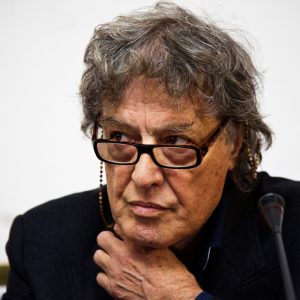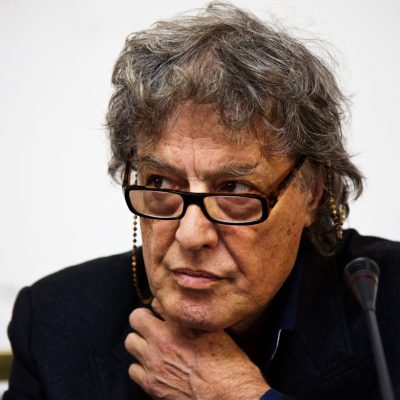18 Jul 2021 | Cuba, News
[vc_row][vc_column][vc_single_image image="117089" img_size="full" add_caption="yes"][vc_column_text]The Cuban revolution has always been adept at PR. Even in the early days, before the revolution succeeded in overthrowing the American backed dictator Fulgencio Batista, Cuban rebel leader Fidel Castro was a master of propaganda.
When the American journalist Herbert Matthews visited the Sierra Maestra in 1957 and sat down with Castro for an interview, the guerrilla chief fooled Matthews into thinking rebel forces were stronger than they were by marching the same columns of men past at various intervals and by having ‘messengers’ report the existence of non-existent rebel units.
“From the look of things, General Batista cannot possibly hope to suppress the Castro revolt,” wrote The New York Times’ correspondent in his subsequent dispatch.
Over the ensuing half a century, Havana’s propaganda has been equally powerful, fostering an image of Cuba abroad as a besieged outpost against United States aggression; as a beacon of healthcare and education; and as a country in which children are taught to live lives of heroic self-sacrifice in emulation of revolutionary icon Ernesto ‘Che’ Guevara (who is the subject of a cult of personality in Cuba).
For those living at a great distance from the Cuban reality, it is easy to be fooled by the idealistic penumbra that surrounds the Cuban revolution. The arbitrary arrests, the grinding poverty, the tentacles of the state that reach into every aspect of daily life - all are submerged in the minds of foreign admirers beneath a tide of romantic kitsch.
Yet as thousands of Cubans take to the streets in unprecedented protests against the dictatorship, it is important that Western human rights and free speech organisations do not allow the distorted image of Cuba as a tropical socialist outpost against capitalism to muddy their thinking.
Many, thankfully, have not. Each year Amnesty International produces a detailed and damning report on the human rights situation in Cuba. In its 2020 report, Amnesty noted that the authorities in Havana “continued to repress all forms of dissent, including by imprisoning independent artists, journalists and members of the political opposition”. Since the mass protests began on 11 July 2021, Amnesty has been closely monitoring the situation, publishing regular updates as to the whereabouts of Cuban activists and dissident voices.
Human Rights Watch has produced similarly comprehensive reports in its coverage of the deteriorating situation on the island for opponents of the dictatorship. Reporters Without Borders (RSF) has condemned the Cuban government’s repression of citizen protests.
Yet despite the mass of evidence that the government in Havana is an egregious violator of human rights, evidence that is accumulating in real time; and despite the landmark protests by thousands of Cubans who risk imprisonment simply for taking to the streets, one senses that Cuba is unlikely to become a cause célèbre activists in the way that, say, Palestine has become so, or even Belarus or Myanmar.
Worse, some left-wing organisations in the United States and Britain, ostensibly dedicated to human rights and firmly embedded within the social democratic institutions within their countries, have sided openly with the dictatorship. The Democratic Socialists of America (DSA), Young Labour, Black Lives Matter and the Progressive International have all released statements in support of the dictatorship in recent days.
It is vital that organisations dedicated to free speech and human rights continue to draw attention to repressive conditions and abuses inside Cuba. However it is also important that liberals and progressives take the reports that these organisations produce seriously – as seriously as they do when the same accusations are made of less fashionable (or PR-savvy) dictatorships.
During the ongoing Covid-19 pandemic, many liberal and progressive voices were quick to jump on news stories featuring battalions of heroic Cuban doctors sent around the world to aid the anti-pandemic efforts. It would be nice if such interest in Cuba wasn’t so fleeting; if it looked beyond Havana’s carefully manufactured PR operation; and if it expressed itself for once by actually listening to the Cuban people and what they want.[/vc_column_text][/vc_column][/vc_row][vc_row][vc_column][three_column_post title="You may also want to read" category_id="7874"][/vc_column][/vc_row]
25 Jun 2021 | Opinion, Ruth's blog
[vc_row][vc_column][vc_single_image image="116995" img_size="full" add_caption="yes"][vc_column_text]It’s a year since I joined the Index family.
I think for all of us the last 12 months have been an emotional rollercoaster. The impact of Covid-19 has been a cloud over our lives; we’ve lost people close to us, we’ve all feared the effect of a virus no one had heard of 18 months ago, we’ve missed our loved ones and we’ve looked on in horror at events both at home and abroad as political leaders have both failed to manage the pandemic and undermined basic human rights under the guise of public health protections.
Repressive leaders have moved against their citizens, we’ve witnessed coups, heard testimony from detention camps and totalitarian regimes have restricted freedoms to an even greater extent throughout the world. And we’ve seen some of the most important vehicles of media freedom undermined – from Rappler to the Apple Daily.
It’s been difficult not to feel impotent. We haven’t been able to travel to stand with those being oppressed. Democratic countries have understandably focused their efforts on their domestic challenges and the institutions we depend on to enforce our shared norms as outlined in the Universal Declaration of Human Rights have been distracted by the global public health emergency. In other words, it has felt that totalitarian leaders have had a free pass to enforce even harsher restrictions on their peoples.
At Index, even despite the pandemic, we’ve strived to shine a spotlight on some of the most egregious attacks on free expression around the globe. In the last 12 months, we’ve supported journalists, writers, artists and academics in over two dozen countries. We’ve published reports on the impact of Covid-19, the current use of SLAPPs to undermine journalists and on online harms. Index has held events exploring the impact of 100 years of CCP rule in China, as well as on the untold stories hidden by Covid-19 and the impact of AI on social media content. And nearly three quarters of a million people have engaged with our work.
We’ve rebranded, redesigned the magazine and have completely changed our annual Freedom of Expression awards and we’ve started the celebrations to mark our 50th birthday. All of this and our team have only met in person three times, as we continue to do our work from home.
I’m so proud of the Index family, they have adapted and continue to push the envelope, making sure that no dictator can think that the world isn’t watching and that activists around the world know that we have their back. There is so much work to do in the months and years ahead in the ongoing battle for free speech, but after working with the team for a year I don’t doubt that we are making a positive difference, highlighting the bravest campaigners in the world and with your help – providing a voice for the persecuted.
[/vc_column_text][/vc_column][/vc_row][vc_row][vc_column][three_column_post title="You may also want to read" category_id="41669"][/vc_column][/vc_row]
25 Jan 2021 | Index in the Press
[vc_row][vc_column][vc_column_text]Index on Censorship Head of Content explained the problems the Covid-19 pandemic has placed on journalists for the French magazine Monocole.
In the podcast "The Stack", run by Monocle, Steinfeld said that the pandemic creates noise that distracts people, ensuring increases in media restrictions go unnoticed.
"Dictators love noise," she said. "They love distractions. So, while we have been completely justifiably focussed on Covid and refreshing our news feeds. There been so many stories at Index we have heard about, but they just have not been big news stories. In other years they would be."[/vc_column_text][/vc_column][/vc_row]





